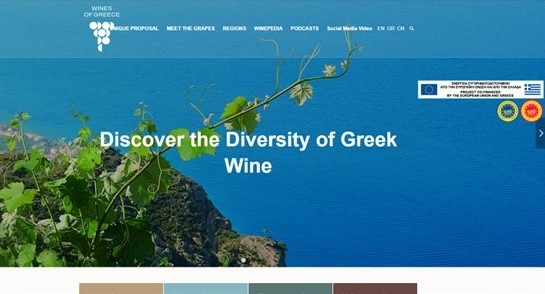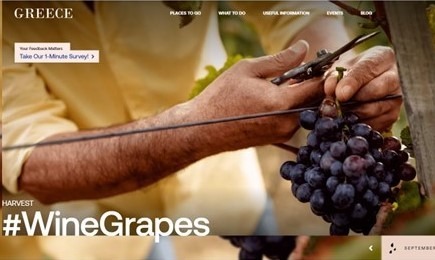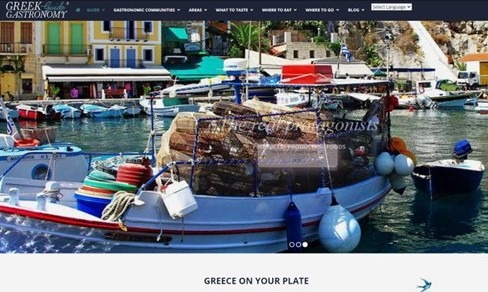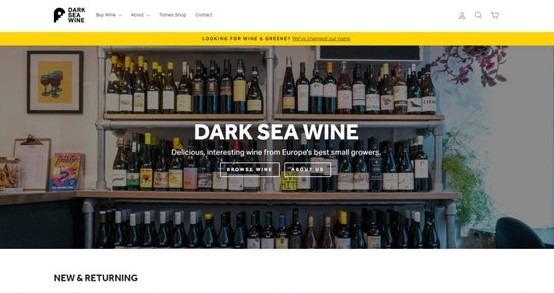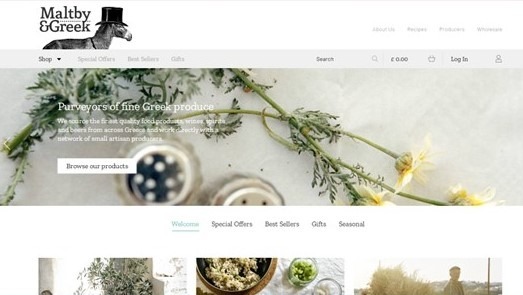Greek Whites
Argyros Assrytiko 2018 Santorini Greece
Estate Argyros, one of Santorini’s leading wine producers, was founded in 1903 and is now the largest privately owned vineyard on the island. I visited their shiny new winery and tasting rooms a couple of years ago. Impressive. It was the 1970s that really saw the place take off and since then they have been honing their skills on two main fronts: sweet Vinsantos and beautiful, age-worthy Assyrtikos. This cuveé is their centrepiece dry white, produced from selected parcels of vines, some over 100 years old, with tiny yields. It’s fermented and aged for a short time on less in stainless steel to retain the varietal’s character, purity and high-acid bite – a textbook Santorini wine.
What gives Santorini such a unique take on this variety is, in part, the volcanic soil left over from the eruption (around 1500 BCE) that tore an enormous whole in ancient Thera. This cataclysmic event created today’s caldera where the centre of the island used to be and covered the surface in thin, infertile soils. And because the vines have to battle to survive and reproduce in this environment, all their effort is directed towards producing grapes rather than masses of sprawling vegetation – good news for winemakers.
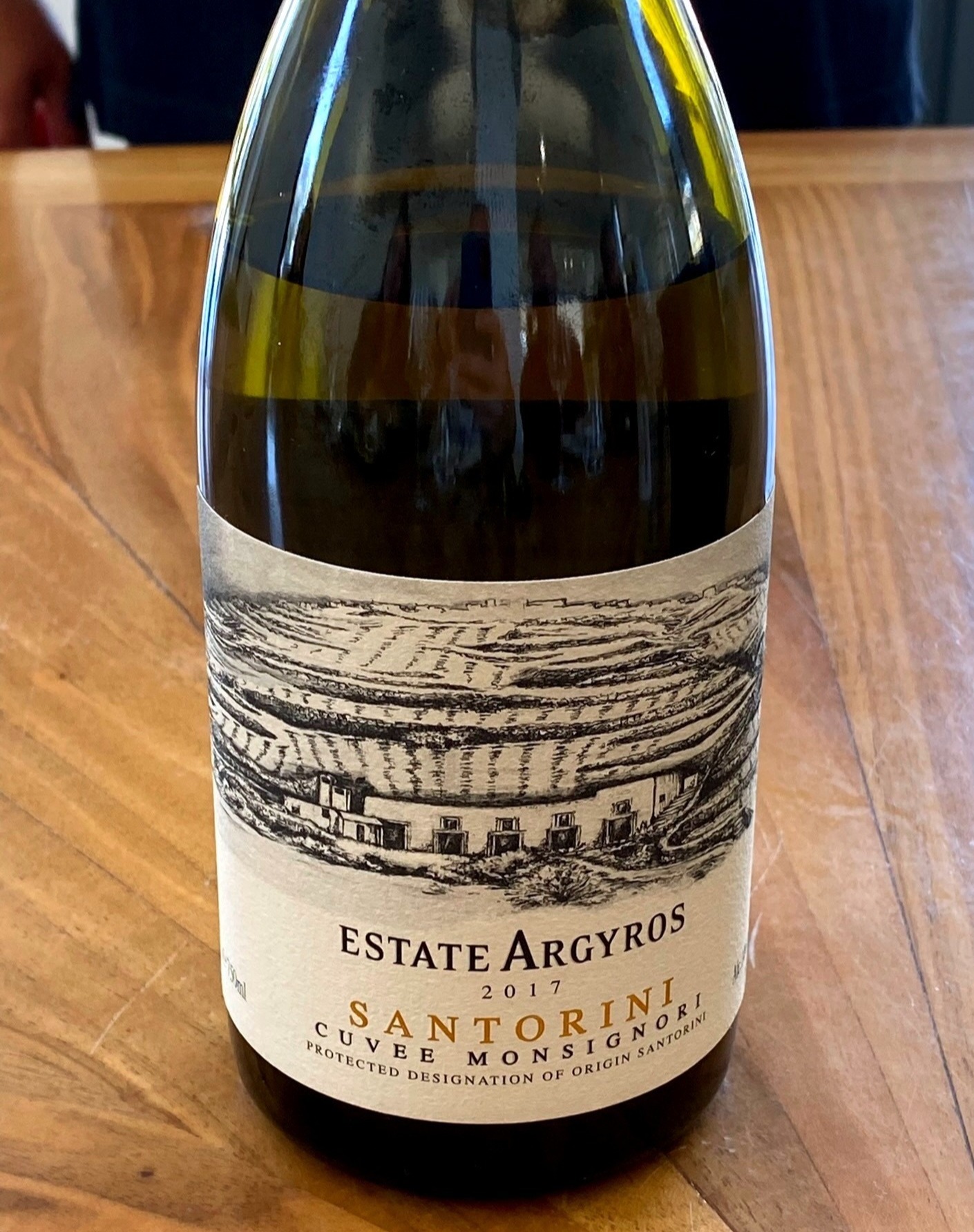
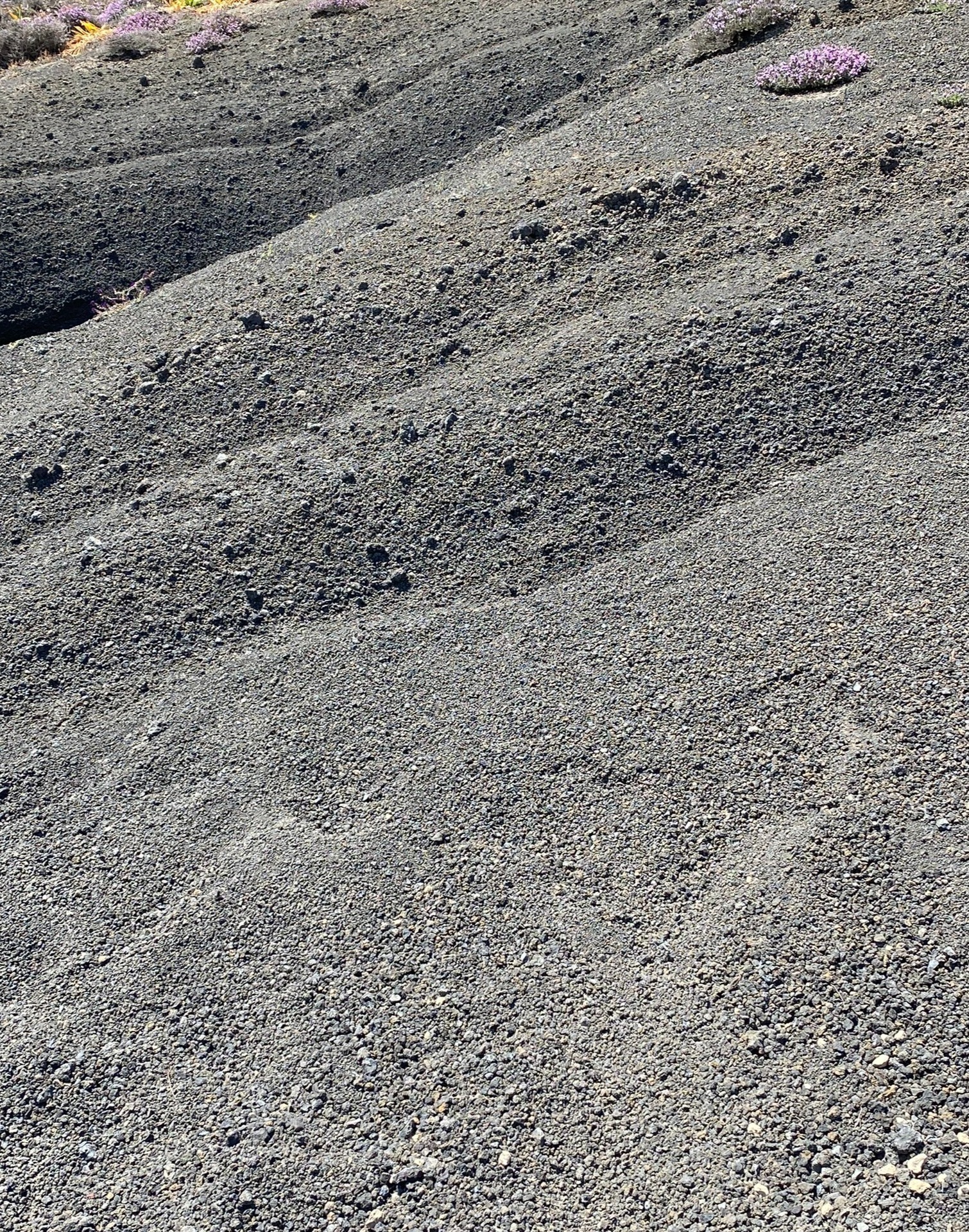
Argyros Cuvée Monsignori 2017 Santorini Greece
On a recent visit to Estate Argyros, I was lucky enough to taste an extraordinary aged expression of Assyrtiko - their 2017 Cuvée Monsignori. The grapes come from 200-year-old vines, on original roots, from selected parcels in Episkopi that provide absurdly low yields of quite marvellous fruit. Fermented in stainless-steel tanks for nearly three weeks, the must is only partially inoculated meaning that some of that wonderful wild-yeast flavour comes through in the wine. Haunting, fascinating. The wine sees eleven months’ maturation on lees with occasional bâtonnage, the process of stirring the sediment back through the wine to increase texture and flavour.
What emerges when you pop the cork is a golden wine with a complex bouquet that runs the entire gamut of Assyrtiko aromas from razor-blade, grapefruity citrus to stone-fruited depth. All underpinned by that unmistakable oceanic minerality in which Santorini specialises, a salinity that reads here as oyster shell and olive brine. There’s real depth and power to this wine but also lightness of touch, delicacy even. And the lees have given the wine real interest on the palate. Not chewy but a weight and presence in the mouth that feels like quality, gravitas rather than heaviness.
The winemaking and ageing have produced an unexpected richness, something that will be a surprise to those weaned on younger whiplash-fresh examples of the grape.
The fruit had edged towards creamy apricot – not jammy though, a hint of the kernel lightening and adding interest. The finish is long, longer, longest resolving at last into a hint of wild herbs burning on the island’s ancient altars. Superb. Without doubt, the finest wine I sampled on the Island.
Thrilled to report that the 2017 and subsequent vintages are now available over here, although they seem to sell out fast. Well worth hunting down - a definitive answer I think to the question of whether Assyrtiko can age. Greece's answer to Riesling? That's a pretty bold suggestion but it's certainly exciting to see what the future has in store for this noble Greek variety.
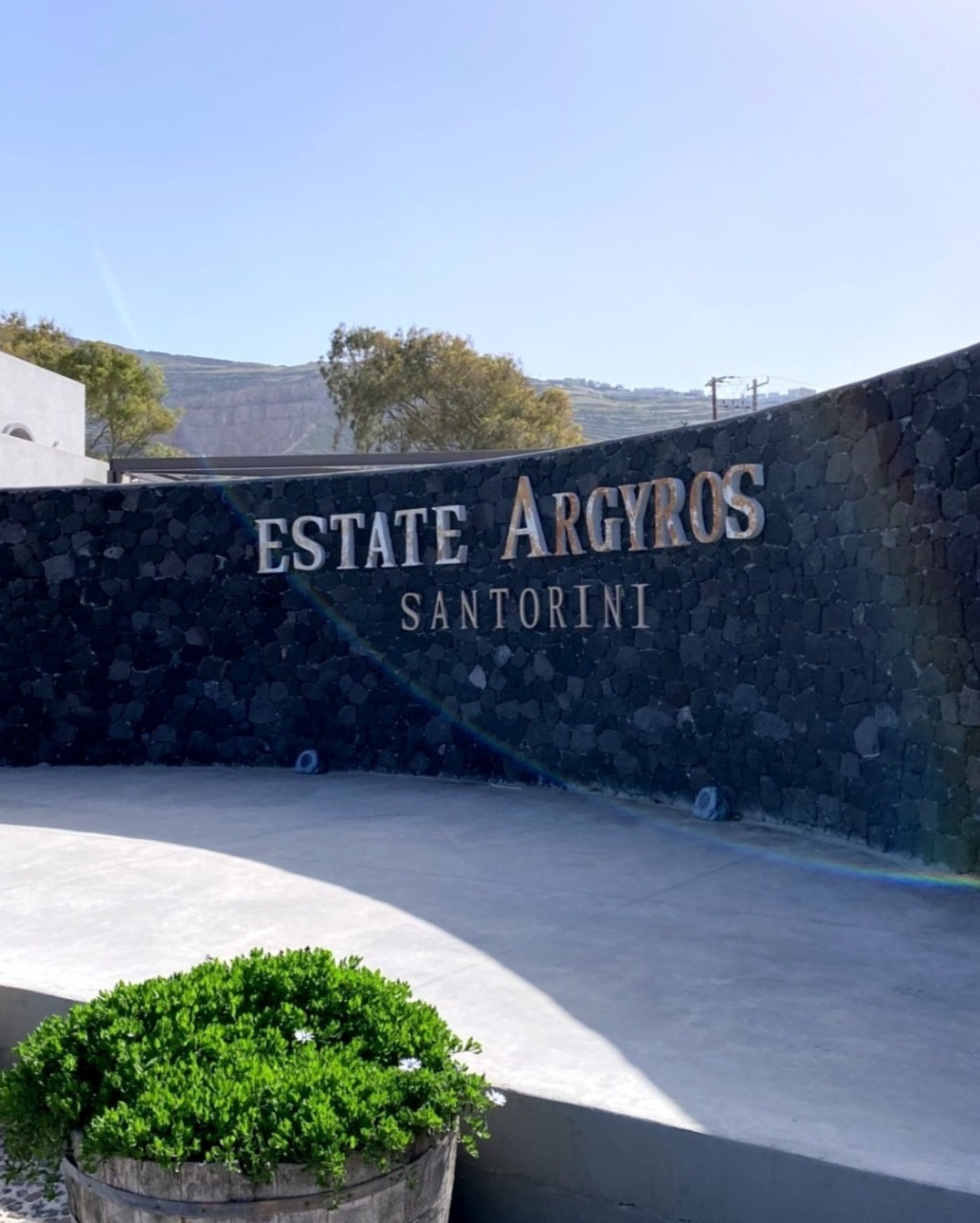
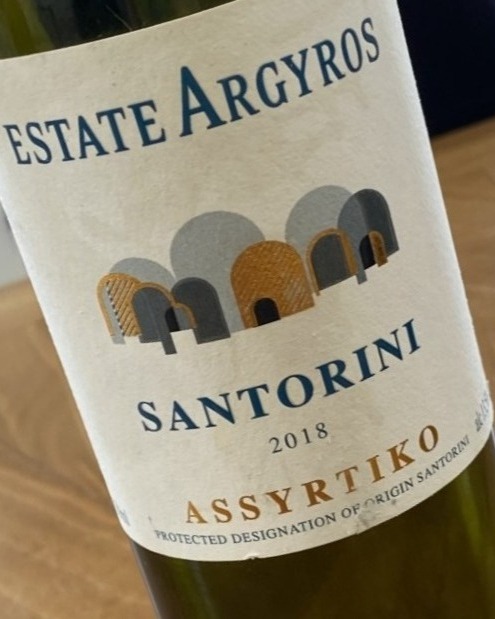
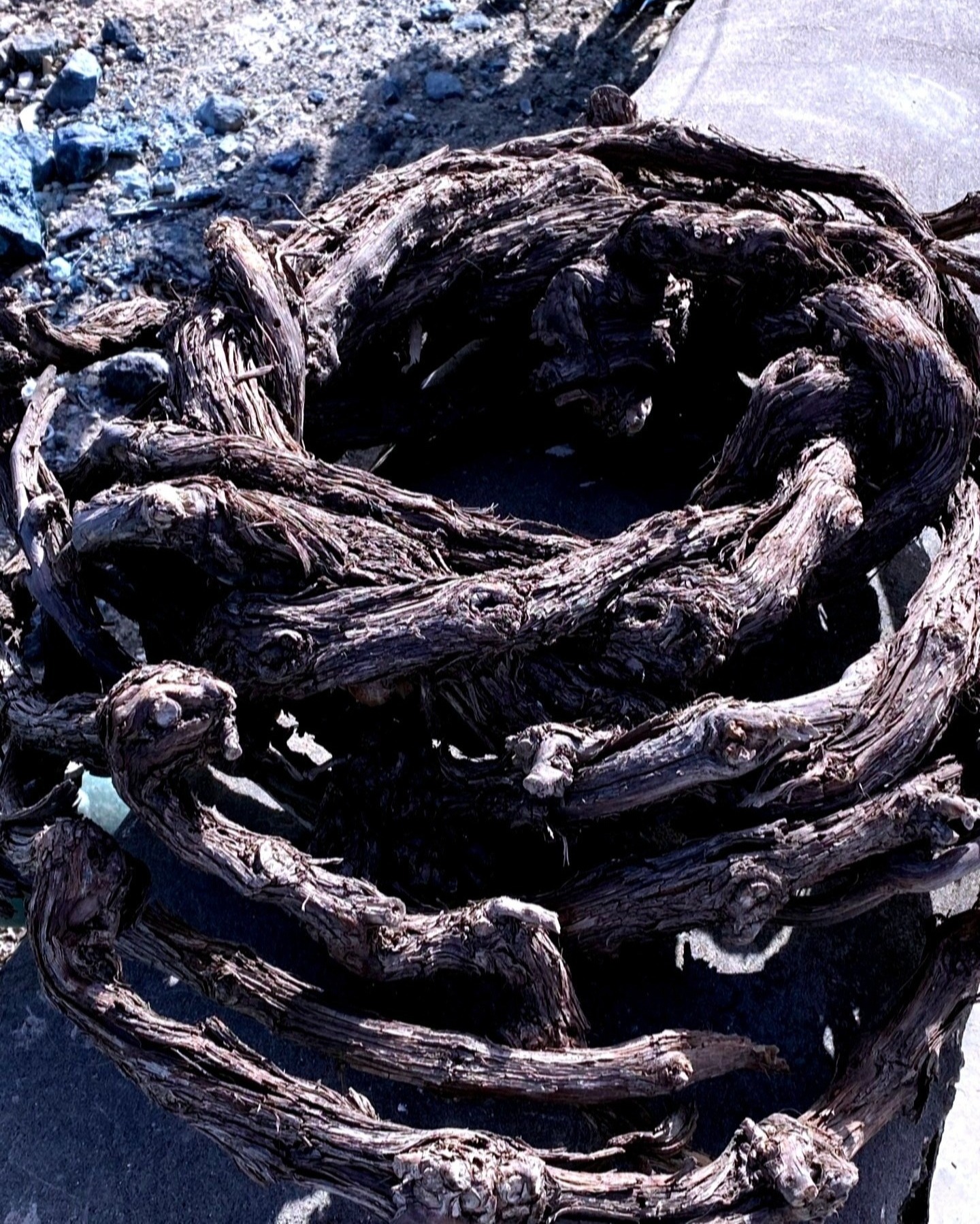
The meagre soil also means that the infamous phylloxera louse that decimated much of Europe’s vines in the C19th has been unable to gain a foothold. So there are some old vines here. Really old. And newer ones can still be planted on original root stock which arguably gives the vines another badge of authenticity.
If you’ve been to Santorini, you’ll know just how bloomin’ windy it can be and the locals get round this by training the vines into what are known as koulouri which roughly translates as wreaths or baskets. They hug the ground, sheltering the fruit from wind and sun, and catch moisture from the sea mists.
The result of all this ingenuity, in the hands of the experts at Argyros, is a crystal clear glass of southern Aegean joy. Its hard not to rhapsodise about this 2018. The nose is that wonderful mix of lemony citrus with touches of something floral – not full-on Sauvignon Blanc greenery and certainly not Gewürztraminer or Muscat eau de Cologne – but flowery nonetheless. These top notes are underpinned by great structure and that classic saline minerality that sets the island’s Assyrtikos apart from their mainland pretenders. And there's the beginning of age-derived aromas, too, something that the island’s winemakers are increasingly exploring.
The high acidity and salty minerality remain along with the freshly cut citrus and overall the wine is still remarkably sprightly and lip-smacking. But deeper, more herbal/spicy aromas have appeared alongside. You can push the Riesling analogy too far – both wines are distinctly themselves, and different – but the ageing potential of Assyrtiko is real and really exciting.
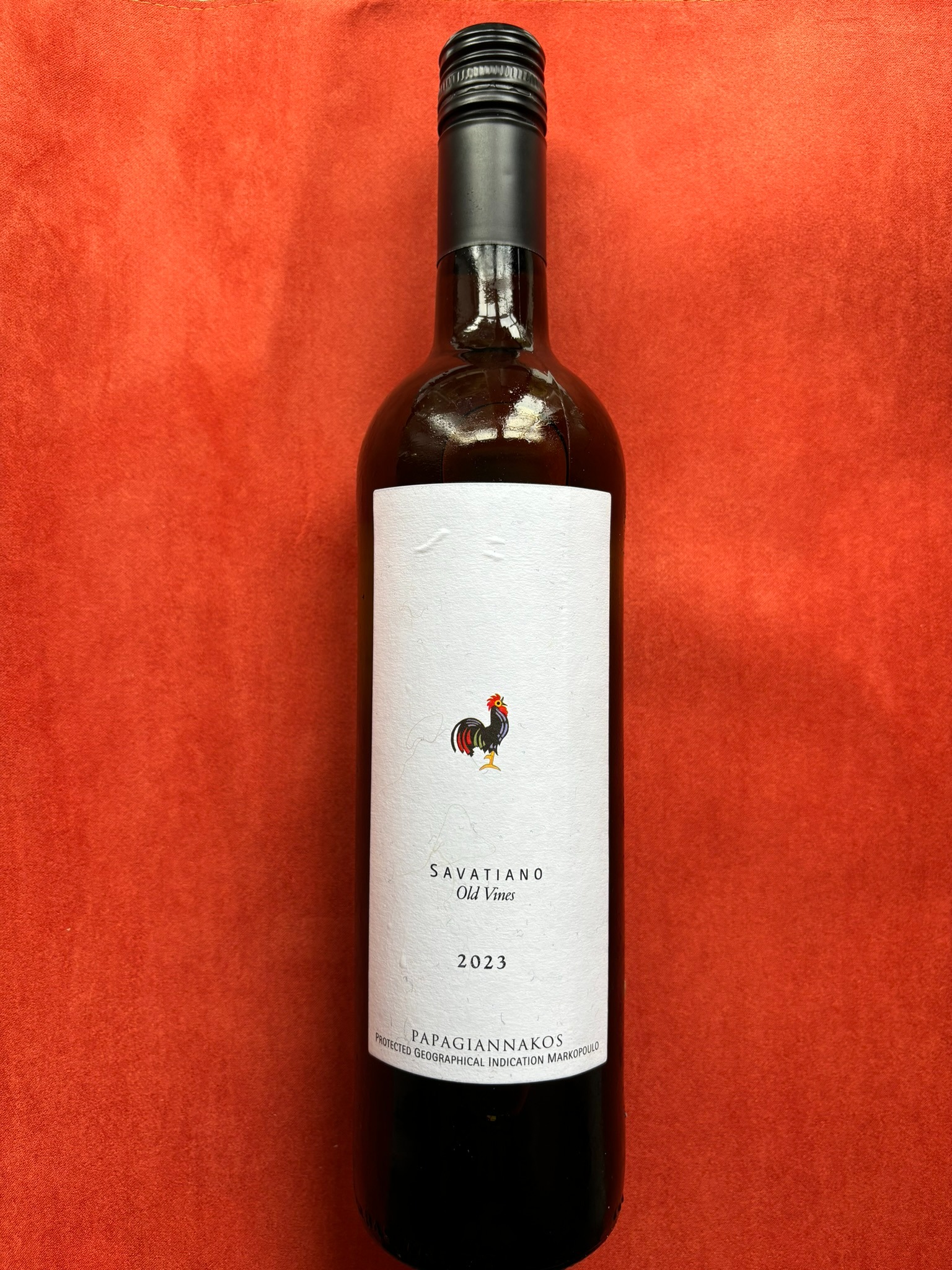
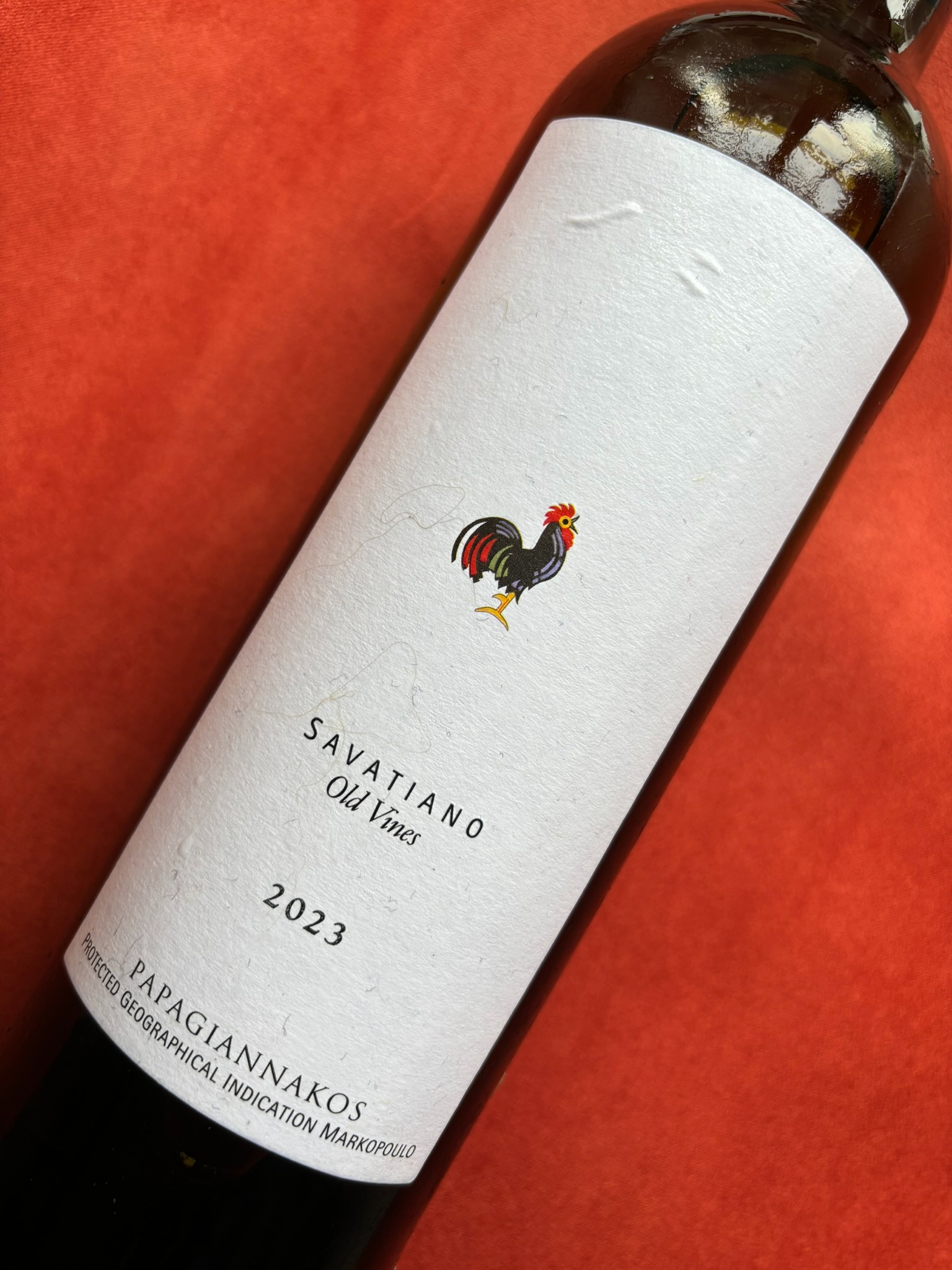
Papagiannakos Old Vines Savatiano 2023 Markopoulo Greece
PGI Markopoulo in Attica, the region surrounding Athens in central Greece, is home to much old-vine Savatiano. Naturally, traditions of winemaking run deep here – at least as far back as the fourth and fifth centuries BCE according to Wines of Attica. And, no doubt, far further still. Domaine Papagiannakos is based here, just a short Marathon jog from the Acropolis itself, and has been producing wine for over 100 years from dry-farmed bush vines perfectly adapted to the local climate. Old vines, hand-harvested low yields and vinification in stainless steel make for a pure, concentrated expression of what is in fact Greece’s most widely planted grape (thanks to being the most common ingredient in Retsina).
Papagiannakos’ take on this indigenous varietal is pale and interesting in the glass with a hint of copper at the gills. It’s fruit-forward on the nose: a basket of citrus, not zippy but sun-warmed sliced lemons. Throw in a touch of white peach and a few herbs in the shape of mint and fennel fronds and you have a tangy, savoury wine with a hint of white Bordeaux about its crystal-clear, fresh greenness.
Again, the palate has this pleasing mix of citrus and savoury notes that just calls out for food: something light and caramelised at the edges like pork souvlaki or a meatier fish grilled over vine clippings. The finish is deep and long, herbal lozenges and confit apricot with salted butter playing across the tongue. It continues to develop on the palate into fascinating and really quite savoury nuances.
Just as quality Retsina is now becoming a reality (check out Papagiannakos’ own if you need proof), its main component is also now coming into its own at the hands of quality producers. A grape that has for too long been drowned out by over-exuberant resination is unfurling its wings and reaching a wider audience. Good news all round: it has a lot to offer.
Zafeirakis Malagousia 2023 Tyrnavos Greece
Christos Zafeirakis is from one of the traditional winemaking families in Tyrnavos in the foothills of Mt. Olympus. Studying oenology in Athens and then honing his craft in northern Italy, he has brought new thinking to traditional local varietals such as the black Lemniona/Limniona and white Malagousia. Teetering on the brink of extinction until the 1970s, the latter grape is now recognised as one of the most interesting and potentially noble of Greece’s indigenous whites.
This cuvée is 100% Malagousia from 10- to 15-year old vines grown organically and biodynamically on flinty, sandy clay. Fermented in stainless steel with ambient yeasts, it then undergoes a period of ageing on the lees resulting in an elegant, unoaked but textural wine that offers a distinctly different experience to Assyrtiko and the raft of other international high-acid white wines.
It's pale lemon in colour with a fresh green tinge. The nose is fruity and herbal with an undertow of clean flintiness. Citrus tones are to the fore, but clementine and kumquat rather than the more usual lemon and lime. This warm orangey quality then broadens out into peach and fresh apricot, the sunniness of the fruit undercut nicely by the steel of its minerality.
Beyond this, there are subtle aromas of white flowers and a hint of jasmine that match well with a herbal, fennel-like quality. It follows over on to the palate, too, but here there is more of a yellow-apple profile, ripe and broad. And things are kept interesting by the wild-ferment zip. Lees ageing has not added much to the flavour but it is there is the interesting, toothsome texture. Acidity is medium, sufficient to keep things whipping along but a different prospect entirely to the grapes of a certain wind-swept Aegean island.
There’s a mellowness on show here, ripe fruit and restrained acidity, that puts me in mind of Viognier albeit without the oily, burnished quality of the premium Rhône grape. Nevertheless, there’s good weight in the mouth and the finish is pleasingly long and lingering. A very well-made wine and a welcome change to the rapier cut of currently more fashionable, fresher varietals. Its herbal warmth means that it would stand up well to Greek vegetable or rice dishes, Kolokithopita perhaps or Spanakorizo.
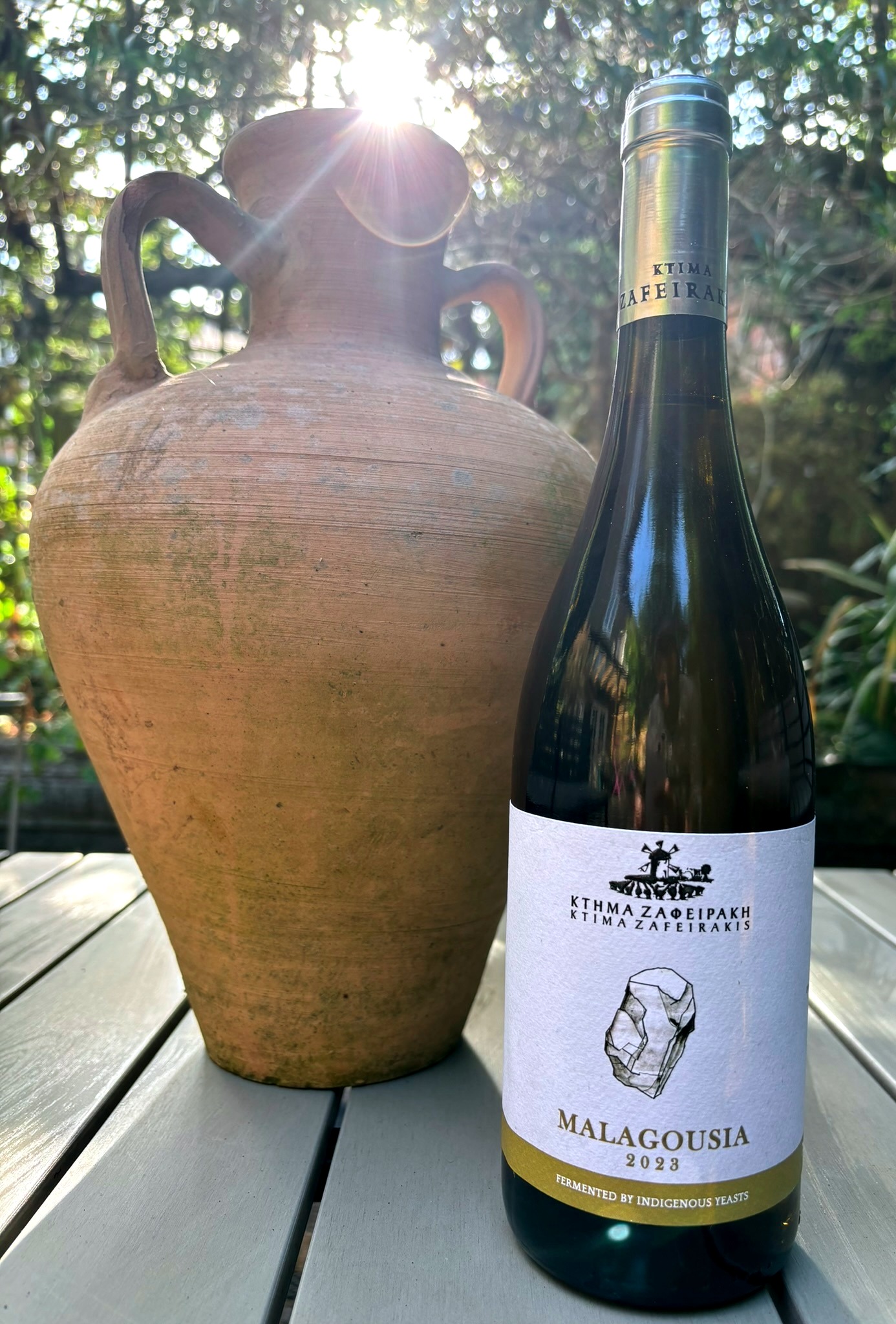
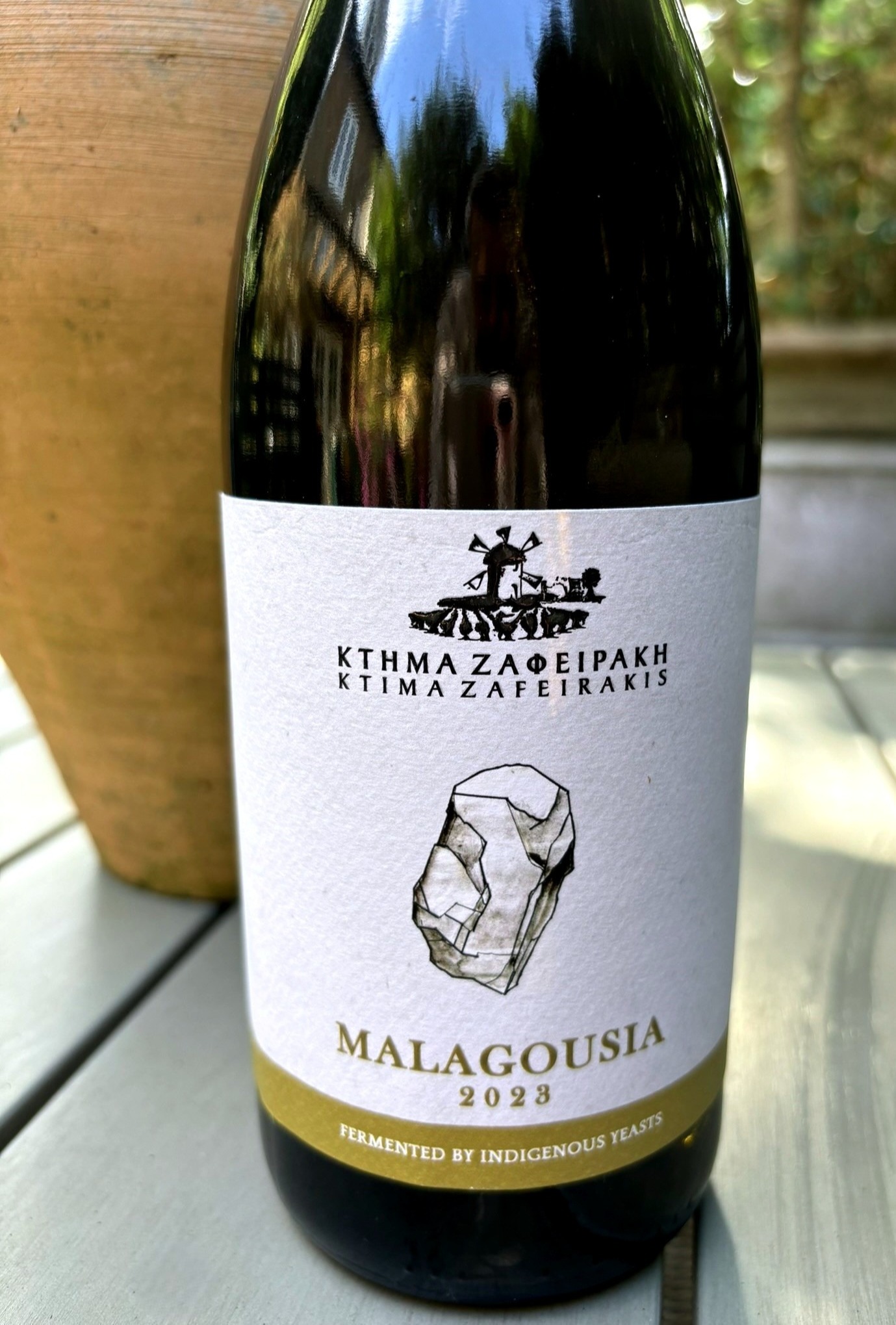
Lyrarakis Armi Thrapsathiri 2022 Crete Greece
Lees are, predominantly, dead yeast cells left floating around in a wine post fermentation. They come in two types. Gross lees which are, as their name suggests, heavier. They fall out of suspension quite quickly and are generally removed pretty promptly. Fine lees, being lighter, lurk around for longer and can be left in situ during maturation which affects a wine’s flavour and texture. It’s a technique that can really add body, mouthfeel and interest on the palate.
But there’s a certain set of lees-derived aromas that are difficult to describe in a way that sounds even remotely attractive: cheese, fermented butter and yeast hardly sound promising in a wine. And yet what they are describing – often a fresh-curdy tang or a purified-ghee fragrance rather than a full-on aged Gouda hum – can be delightful. And once you’ve fallen for these aromas in wine, they are hard to resist.
That’s what leaps out of Lyrarakis’ single-vineyard Thrapsathiri when you first open the bottle: warm butter and fresh Mizithra cheese. Behind, but not too far, is the hit of oak: cedar smoke and a hint of vanilla. Then, and only then, does the fruit reveal itself: lemon juice, yellow apple and quince heading steadily off in the direction of melon, peach and even a hint of tropical breadth. And all seasoned with salt and a greenness that is not Sauvignon Blanc grass so much as slivers of green almond. It’s the sort of thing that I imagine, in my more poetic moments, Calypso serving a weary, salty-lipped Odysseus on the beaches of Ogygia. Beguiling, for sure.
Family-run Lyrarakis makes this wine on the larger Greek island of Crete, where they take an organic-regenerative approach to viticulture. The grapes are grown at relatively high altitude in the terraced Armi vineyard, which accounts for their heroic acidity – enough to wake even the sleepiest of sailors. And the lees have given it a nice chew, too. It’s something to dive into: unusual, arresting, all upfront brass and cymbals and back-palate tympani, the mid-palate strangely subdued and echoing. The finish is long, long but not fruity: elusive like smoke across a wine-dark sea.
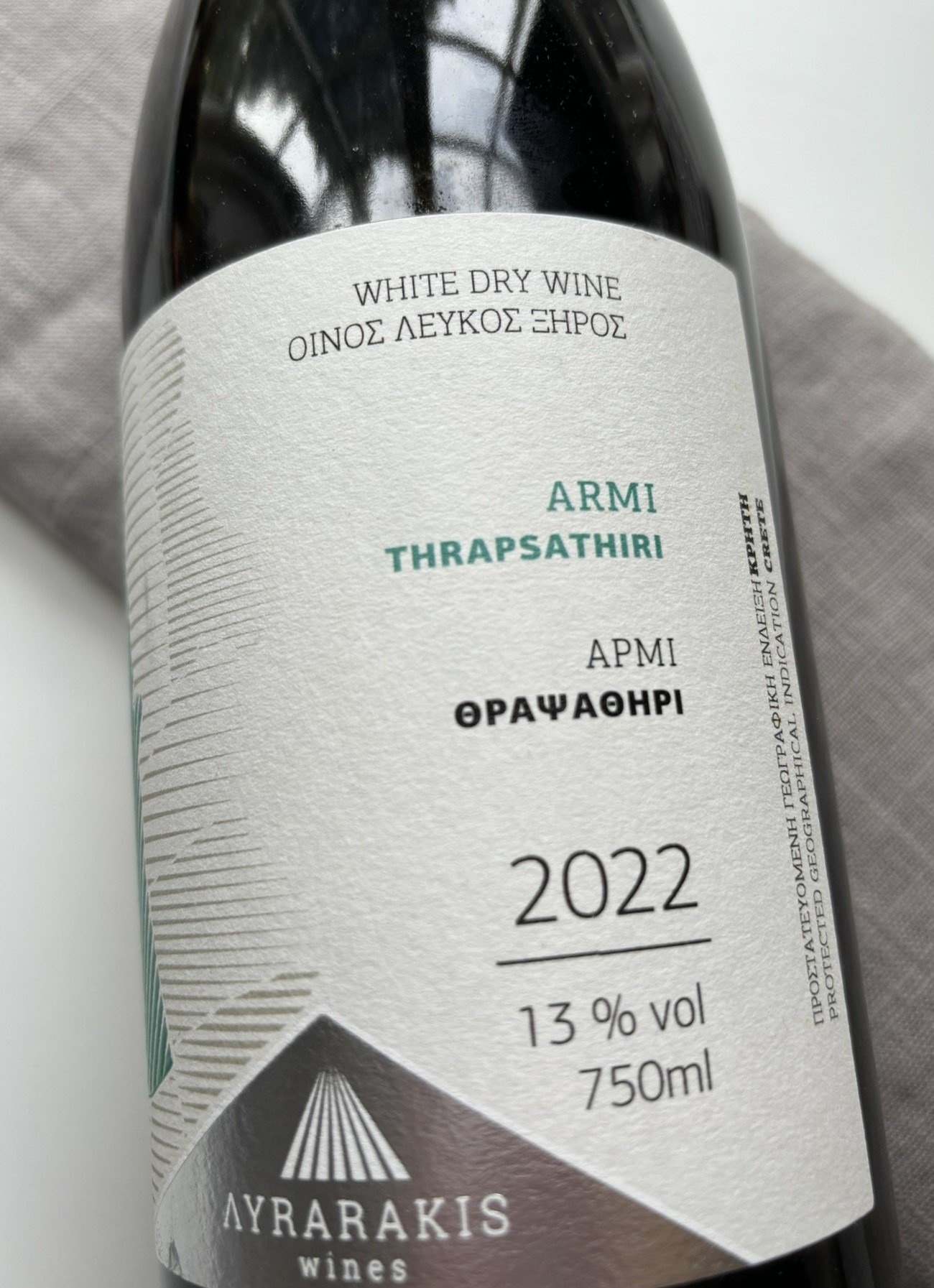
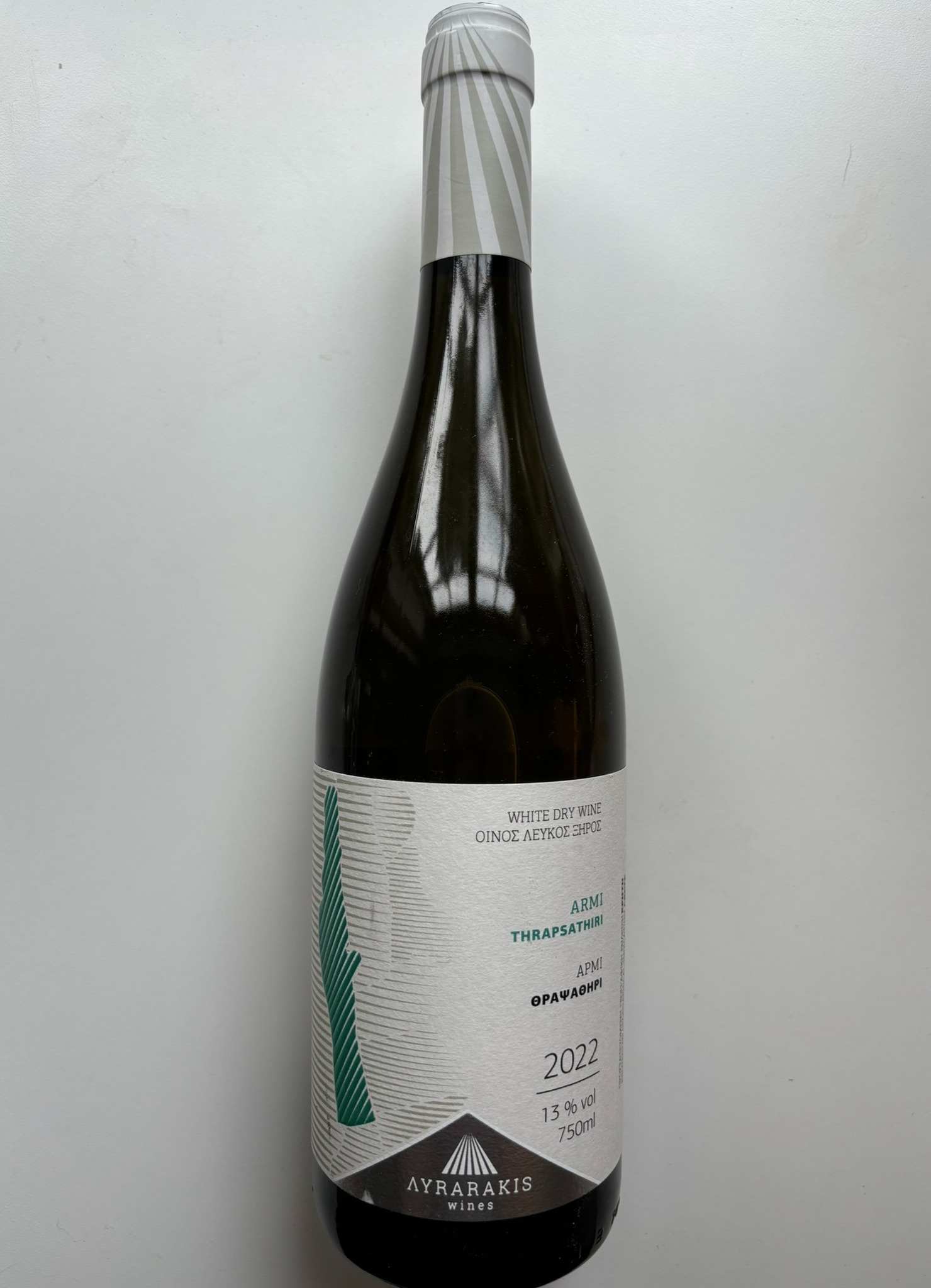
Santo Nykteri 2020 Santorini Greece
Assyrtiko has made the leap on to the international wine stage, but I think it’s fair to say that its most traditional form, Nykteri, is still relatively unknown beyond its Santorini home. The name indicates the old way of making wines in which very ripe grapes where hand-harvested by day and then foot-stomped during that night when temperatures were lower and the oxidising effects of light less of a problem. ‘Nykta’ is the modern Greek for night, hence ‘Nykteri’. The resulting wine is then aged in oak barrels to give a richer style quite unlike our usual idea of the fresh, saline wines of the Aegean.
Santo’s Nykteri is a blend of majority Assyrtiko with Athiri and Aidani, two of Greece’s workhorse white grapes. Athiri is occasionally made into single-varietal wines of no great distinction but here is adds weight, with the Aidani adding welcome floral nuances into the mix. Six months in French oak barrels adds even more depth and texture resulting in a full-bodied, powerful, golden wine that really is worth a taste if you happen upon a bottle. Pleasingly unexpected.
The nose is interesting mix of tart citrus and apple with the warmer, more floral tones that the minor blending partners bring to the table. The oak provides character but doesn’t overwhelm, although I admit that some palates might consider it a distraction from Assyrtiko’s bee-sting purity. Nevertheless, the acidity remains sufficiently high to outline the flavours well and there is balance here despite the decidedly different approach. A taste of Santorini history, with a good long finish.
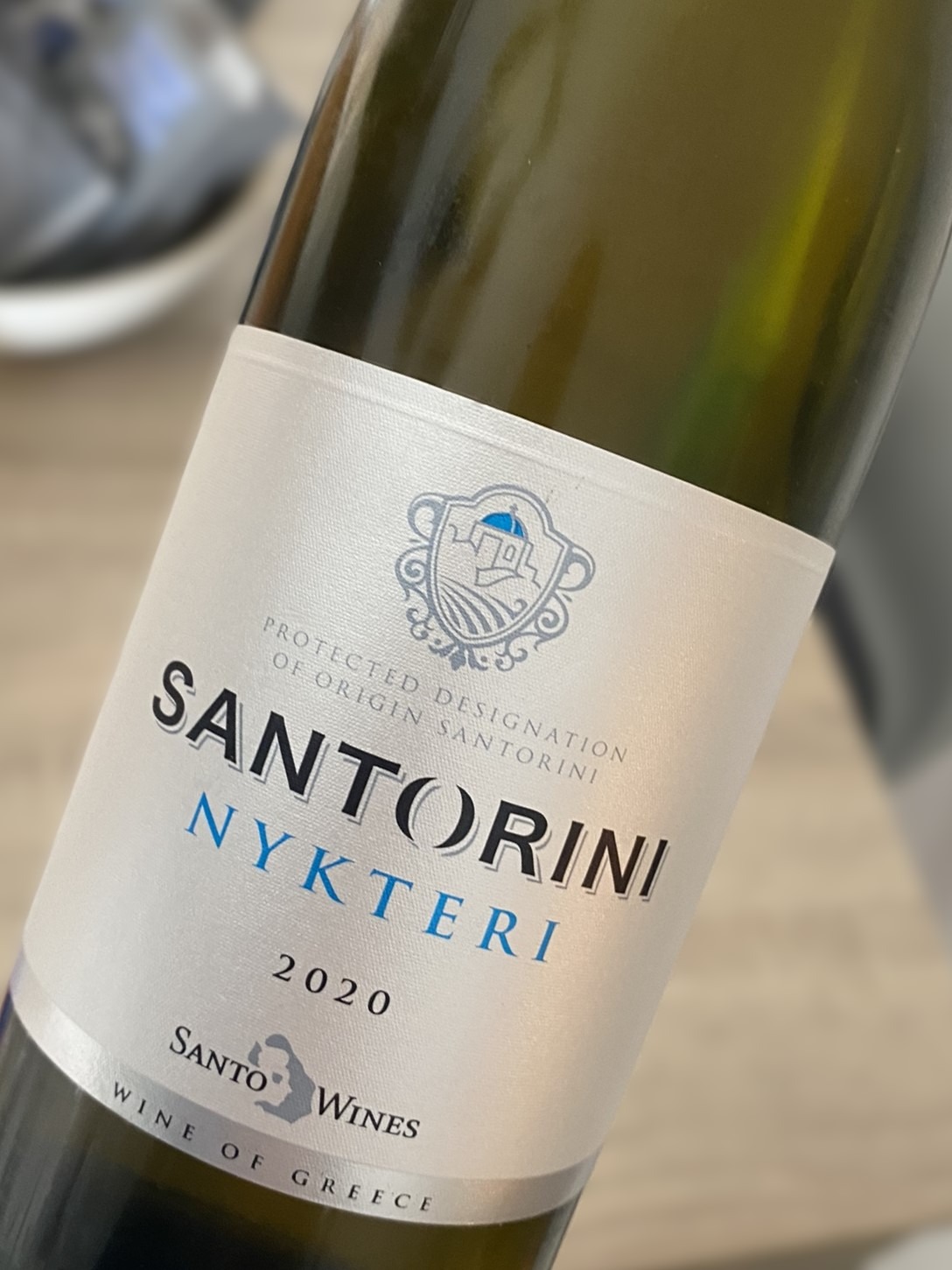
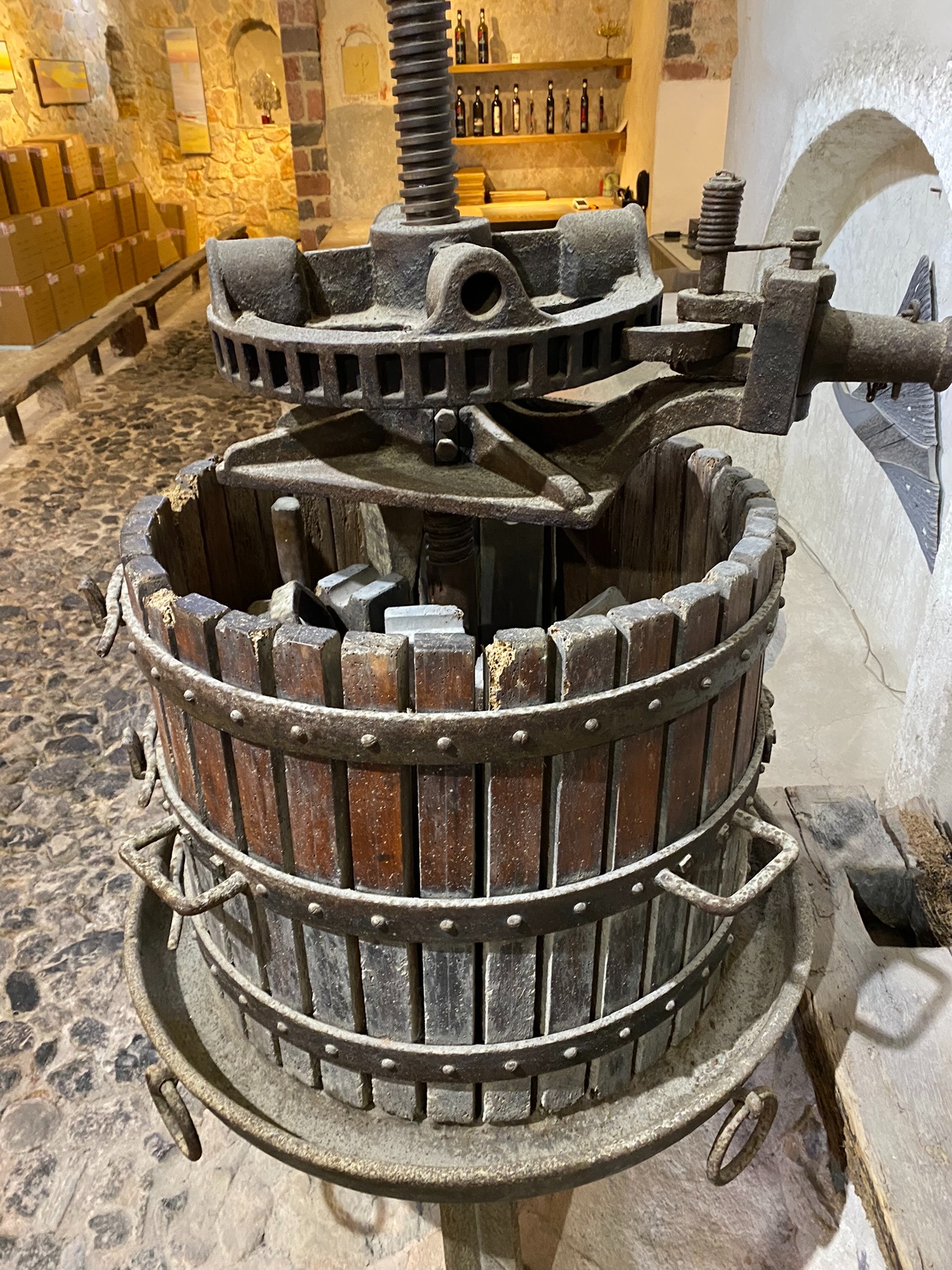
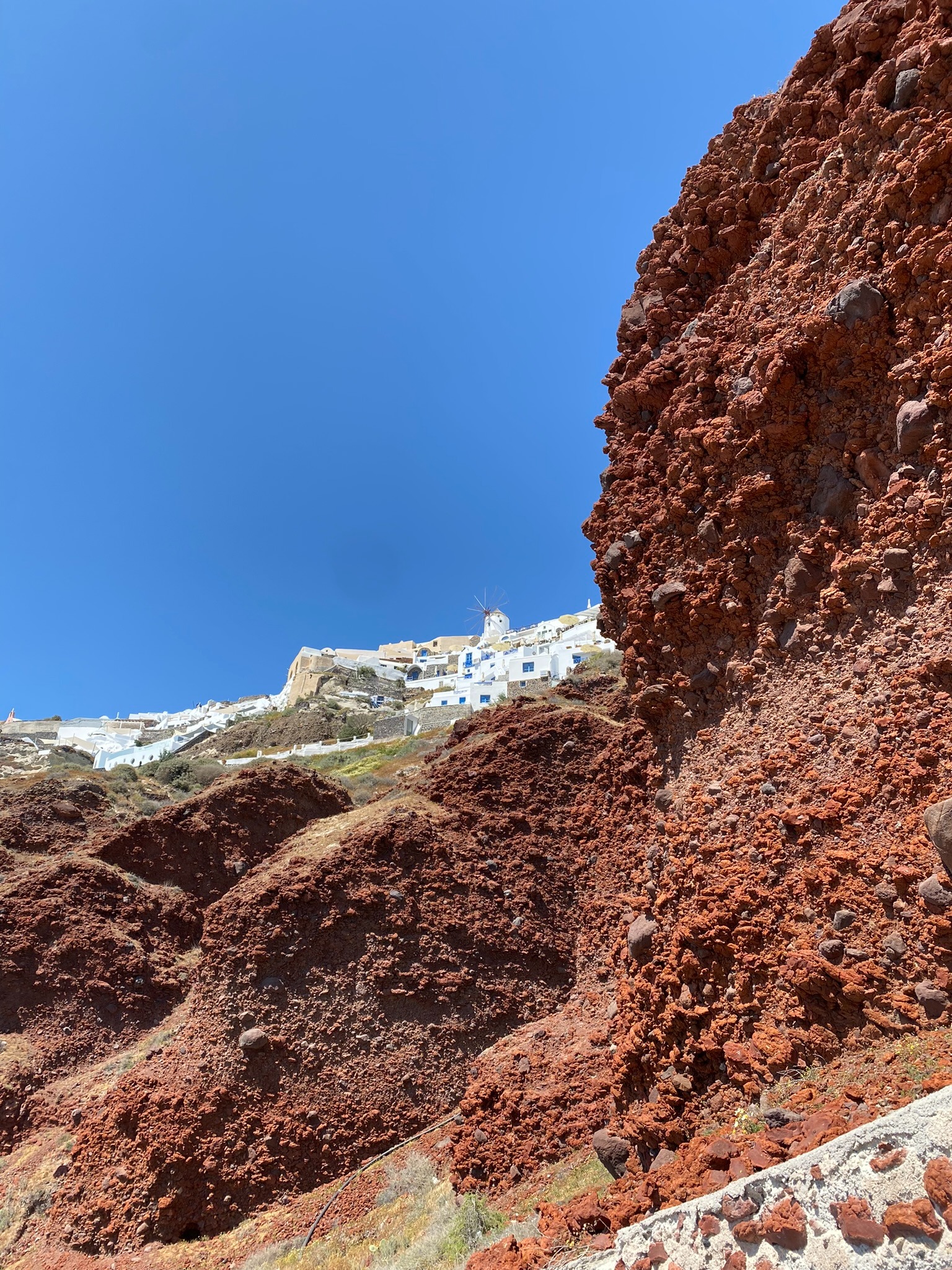
Useful links
Wines of Greece
Greece's National Interprofessional Organisation of Vine and Wine (EDOAO) has a lot of interesting information on regions and grape varieties.
Some of my favourite specialist retailers
... unsystematic, unsponsored, unapologetic ...
Dark Sea Wine
Specialists in Greek wine and more, operating from their lovely shop in Totnes, Devon.

